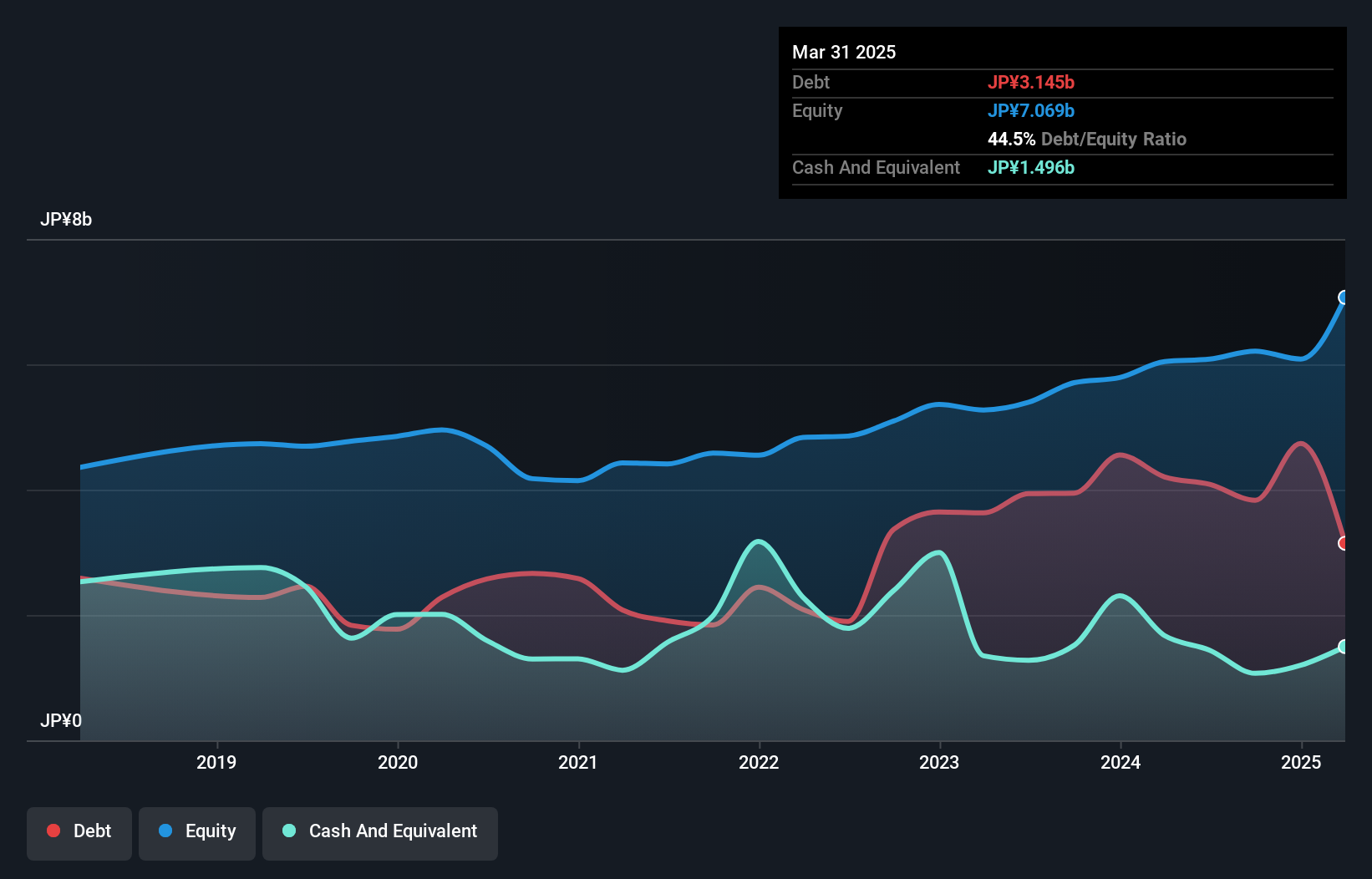- Japan
- /
- Auto Components
- /
- TSE:7273
These 4 Measures Indicate That ikuyoLtd (TSE:7273) Is Using Debt Extensively
Howard Marks put it nicely when he said that, rather than worrying about share price volatility, 'The possibility of permanent loss is the risk I worry about... and every practical investor I know worries about.' It's only natural to consider a company's balance sheet when you examine how risky it is, since debt is often involved when a business collapses. Importantly, ikuyo Co.,Ltd. (TSE:7273) does carry debt. But should shareholders be worried about its use of debt?
Why Does Debt Bring Risk?
Generally speaking, debt only becomes a real problem when a company can't easily pay it off, either by raising capital or with its own cash flow. If things get really bad, the lenders can take control of the business. However, a more usual (but still expensive) situation is where a company must dilute shareholders at a cheap share price simply to get debt under control. Of course, plenty of companies use debt to fund growth, without any negative consequences. When we think about a company's use of debt, we first look at cash and debt together.
What Is ikuyoLtd's Net Debt?
The image below, which you can click on for greater detail, shows that ikuyoLtd had debt of JP¥3.15b at the end of March 2025, a reduction from JP¥4.20b over a year. On the flip side, it has JP¥1.50b in cash leading to net debt of about JP¥1.65b.

A Look At ikuyoLtd's Liabilities
According to the last reported balance sheet, ikuyoLtd had liabilities of JP¥6.95b due within 12 months, and liabilities of JP¥2.24b due beyond 12 months. On the other hand, it had cash of JP¥1.50b and JP¥3.76b worth of receivables due within a year. So it has liabilities totalling JP¥3.93b more than its cash and near-term receivables, combined.
ikuyoLtd has a market capitalization of JP¥18.5b, so it could very likely raise cash to ameliorate its balance sheet, if the need arose. However, it is still worthwhile taking a close look at its ability to pay off debt.
Check out our latest analysis for ikuyoLtd
In order to size up a company's debt relative to its earnings, we calculate its net debt divided by its earnings before interest, tax, depreciation, and amortization (EBITDA) and its earnings before interest and tax (EBIT) divided by its interest expense (its interest cover). Thus we consider debt relative to earnings both with and without depreciation and amortization expenses.
ikuyoLtd has a very low debt to EBITDA ratio of 0.78 so it is strange to see weak interest coverage, with last year's EBIT being only 1.9 times the interest expense. So while we're not necessarily alarmed we think that its debt is far from trivial. Shareholders should be aware that ikuyoLtd's EBIT was down 94% last year. If that earnings trend continues then paying off its debt will be about as easy as herding cats on to a roller coaster. The balance sheet is clearly the area to focus on when you are analysing debt. But you can't view debt in total isolation; since ikuyoLtd will need earnings to service that debt. So if you're keen to discover more about its earnings, it might be worth checking out this graph of its long term earnings trend.
Finally, while the tax-man may adore accounting profits, lenders only accept cold hard cash. So we always check how much of that EBIT is translated into free cash flow. During the last three years, ikuyoLtd burned a lot of cash. While that may be a result of expenditure for growth, it does make the debt far more risky.
Our View
To be frank both ikuyoLtd's conversion of EBIT to free cash flow and its track record of (not) growing its EBIT make us rather uncomfortable with its debt levels. But on the bright side, its net debt to EBITDA is a good sign, and makes us more optimistic. Looking at the bigger picture, it seems clear to us that ikuyoLtd's use of debt is creating risks for the company. If all goes well, that should boost returns, but on the flip side, the risk of permanent capital loss is elevated by the debt. The balance sheet is clearly the area to focus on when you are analysing debt. But ultimately, every company can contain risks that exist outside of the balance sheet. These risks can be hard to spot. Every company has them, and we've spotted 4 warning signs for ikuyoLtd (of which 2 are potentially serious!) you should know about.
If you're interested in investing in businesses that can grow profits without the burden of debt, then check out this free list of growing businesses that have net cash on the balance sheet.
Valuation is complex, but we're here to simplify it.
Discover if ikuyoLtd might be undervalued or overvalued with our detailed analysis, featuring fair value estimates, potential risks, dividends, insider trades, and its financial condition.
Access Free AnalysisHave feedback on this article? Concerned about the content? Get in touch with us directly. Alternatively, email editorial-team (at) simplywallst.com.
This article by Simply Wall St is general in nature. We provide commentary based on historical data and analyst forecasts only using an unbiased methodology and our articles are not intended to be financial advice. It does not constitute a recommendation to buy or sell any stock, and does not take account of your objectives, or your financial situation. We aim to bring you long-term focused analysis driven by fundamental data. Note that our analysis may not factor in the latest price-sensitive company announcements or qualitative material. Simply Wall St has no position in any stocks mentioned.
About TSE:7273
ikuyoLtd
Manufactures, produces, and sells synthetic resin products in Japan.
Flawless balance sheet with solid track record.
Market Insights
Community Narratives



